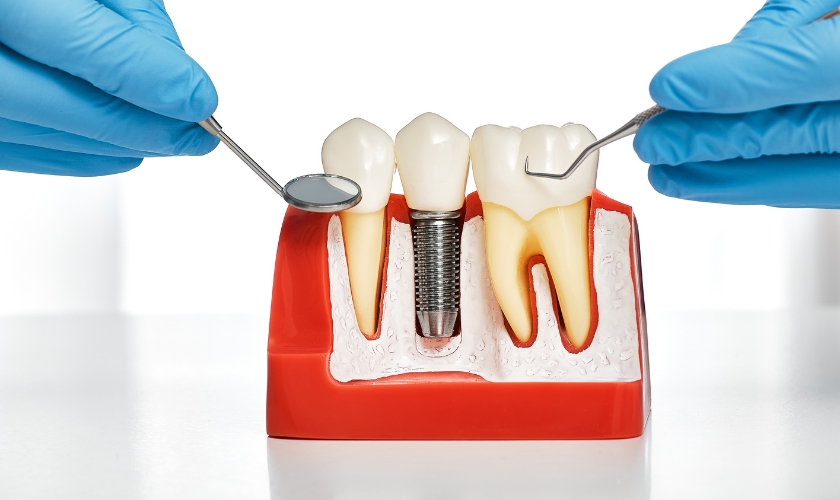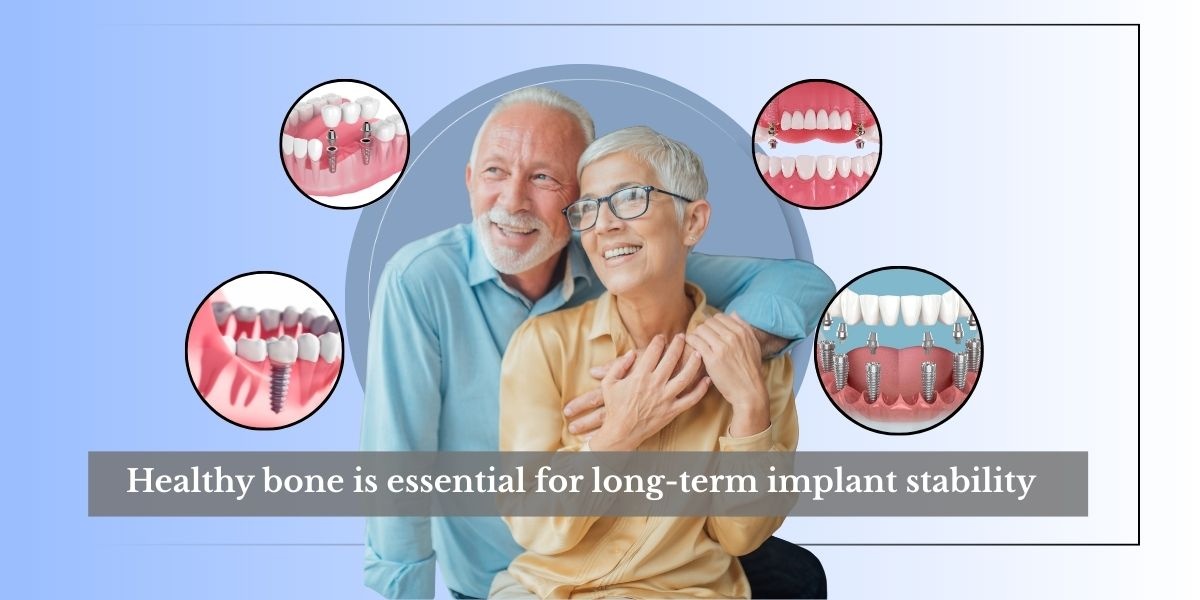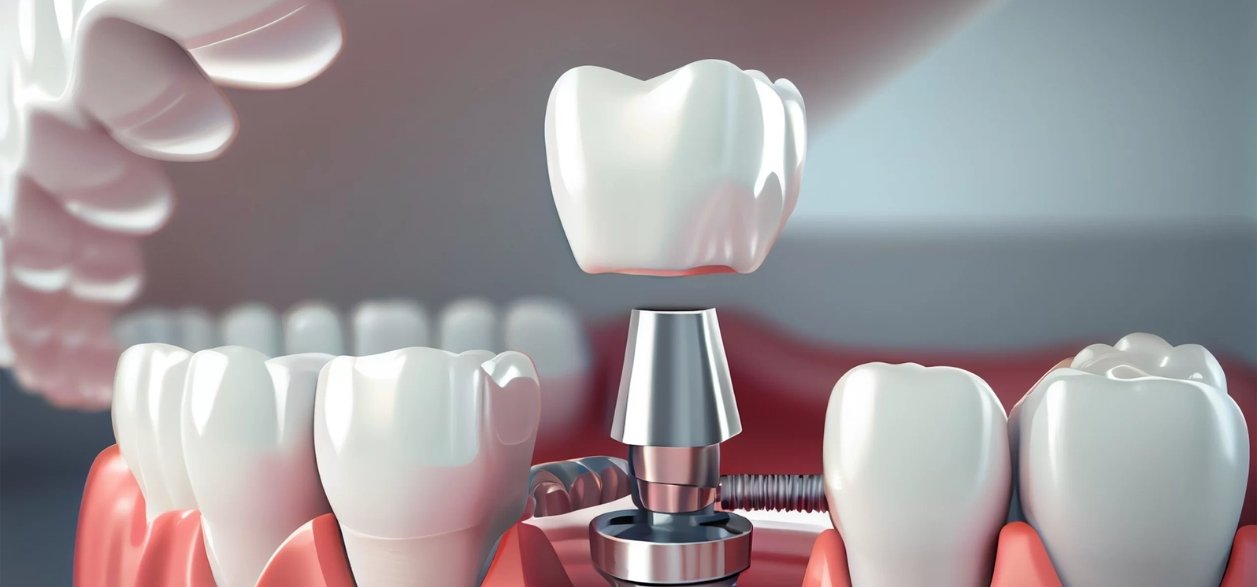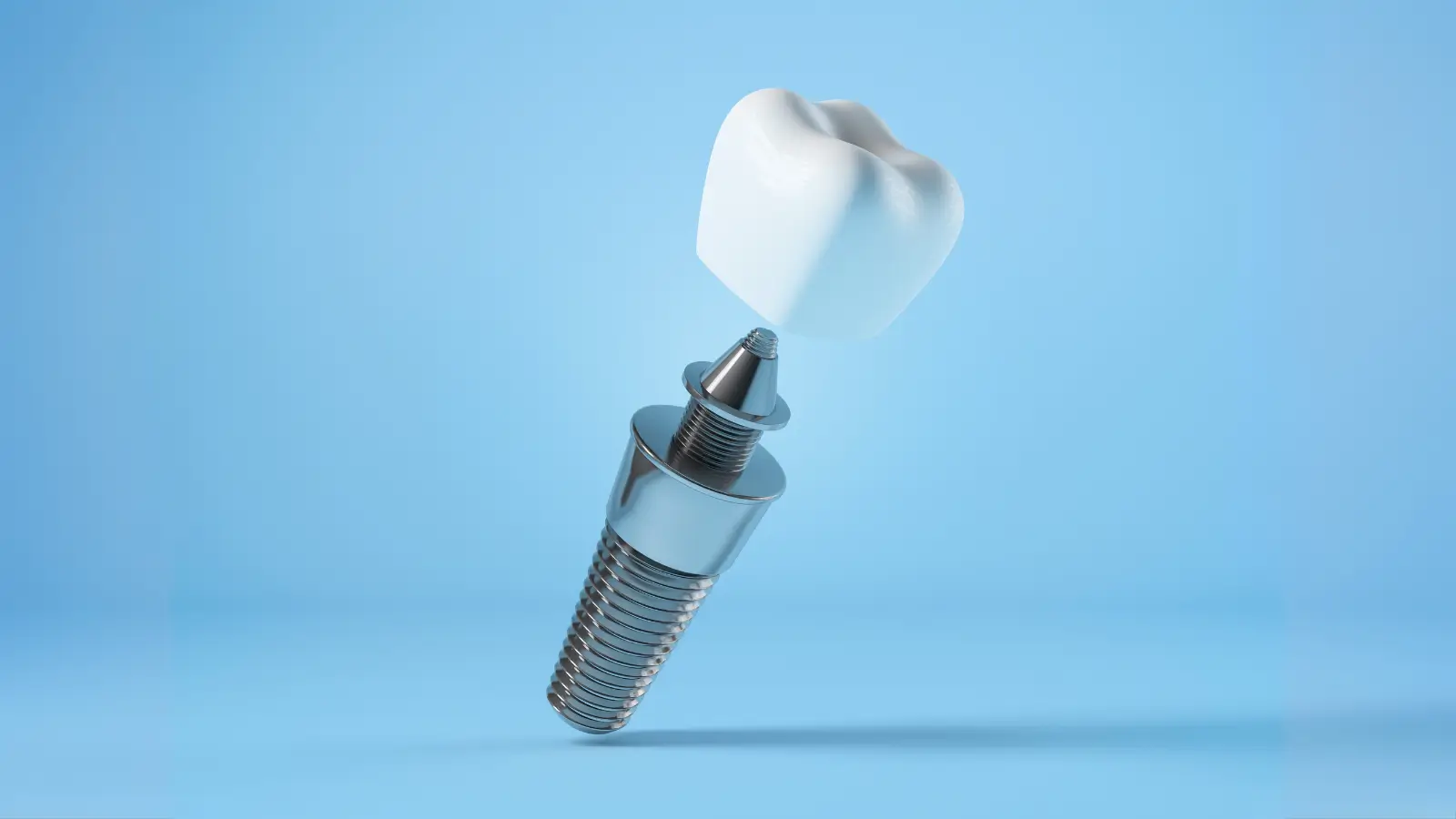Eating After Dental Implant Surgery: Your Guide to a Smooth Recovery

Dental implant surgery transforms smiles. However, healing is dependent largely on wise food choices. Patients underestimate food’s role in recovery. Snacking on the wrong foods speeds up pain, infection, or failure of implants. Safe food options after procedure queries baffle the majority.
Knowledge about food for healing is essential for healing. This blog offers approved foods, explains harmful food choices, and provides suggestions for efficient healing. These strategies allow for a comfortable time and safeguard your investment in dental implant surgery.
Why Diet Matters After Dental Implant Surgery
Diet has a direct influence on gum healing and implant stability. Good nutrition promotes immunity and healing. Osseointegration, the laying down of bone on implants, is promoted by balanced diets. Gums remain healthy and firm with an adequate dietary balance.
Avoid chewing hard or sticky foods in the first few weeks post-op. The wrong foods will lead to inflammation, bleeding, or infection. Food has to be carefully chosen by the patient to safeguard the healing stages. Following the proposed meals regularly guarantees a dental implant surgery victory and long-term oral health.
What Can You Eat Right After Surgery?
In the first 48 hours, you should have liquids and very soft foods. You can nourish yourself with smoothies, yogurt, applesauce, and warm soup without straining.
Avoid using straws as suction may knock loose protective clots. Easy chewing prevents surgical site irritation. Soft foods for nourishing promote faster gum repair and reduce discomfort. Cold options, such as cold yogurt, soothe tenderness.
Patients with dental implants in St. Louis should prioritize gentle nutrition. Smooth food keeps energy levels stable and protects implant sites. Eating small meals frequently prevents excessive chewing pressure.
First Week: Comfort and Healthy Foods
Remain on soft, non-chewing food types post initial recovery. The ratio for mashed potatoes, scrambled eggs, oatmeal, and soft pastas is a sensible one. Vitamins and minerals are also found in high-calorie foods. Protein and amino acid choices will help the bone and tissue recovery.
Proper hydration is also vital, so drink plenty of water. Mild drinks, such as milk or herbal tea, are energy enhancers because they do not irritate. Diversity of texture prevents boredom and malnutrition.
Good meals during this period help recovery. Patients on a soft diet protect dental implant surgery results effectively.
Dietary Avoidances During Healing
Avoid hard, crunchy, or sticky foods like chips, nuts, or chewing gum. These items damage healing gums. Pungent or acidic food irritates sensitive tissue. Very hot foods interfere with clotting. Carbonated drinks, alcohol, and smoking slow down healing.
Patients who have dental implants in St. Louis need to be conscientious about poor habits. Ignorance of restrictions risks swelling, bleeding, or infection. Sensible avoidance of food facilitates faster healing and better success of the implant. Self-control today guarantees healthier oral health in the future.
Return to a Normal Diet
Two to three weeks afterward, gradually introduce firmer foods. Watch for discomfort or gum tenderness before continuing. Signs of readiness include reduced swelling and more comfortable chewing. The reintroduction process has to be slow and gradual.
Dental implant patients need to start with cooked vegetables and soft protein foods. Minced food places less stress on it. Gradual transients protect implants and prevent setbacks. Rushed return to regular diets can compromise stability. Discipline guarantees long-term success and healthier smiles.
Mindful eating promises faster healing and implant success. Compliance with rules promises lasting oral well-being. Patients should always respect dietary limitations. Professional assistance prevents complications. Well-balanced foods promise easier healing following dental implant surgery.
Stick to authorized foods and healing procedures. Improved outcomes come from patience and self-control. In the event of recovery or dental implant surgery questions, consult us today.





